Kevin Lee / TA
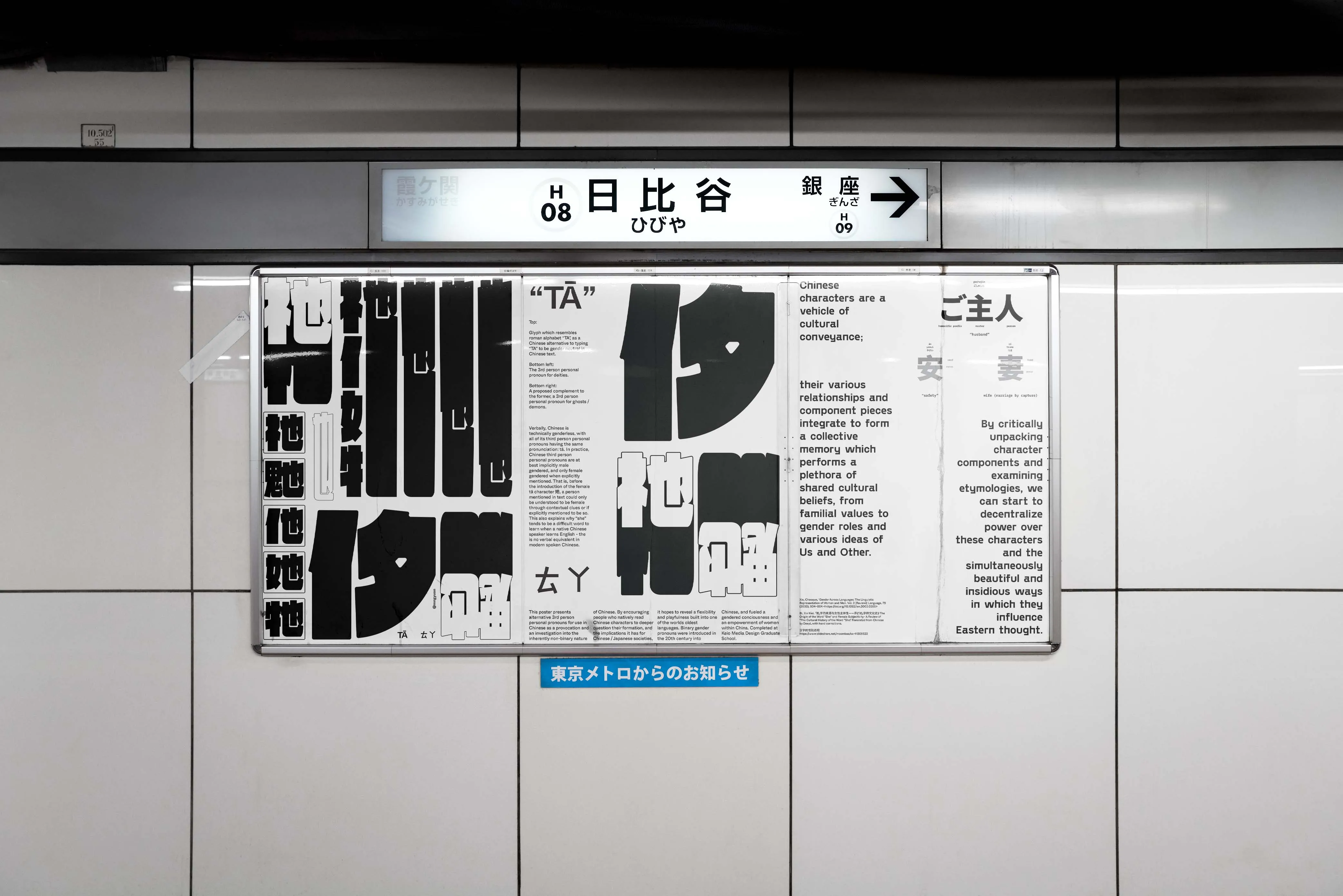
TA presents alternative 3rd person personal pronouns for use in Chinese as a provocation and an investigation into the inherently non-binary nature of Chinese.
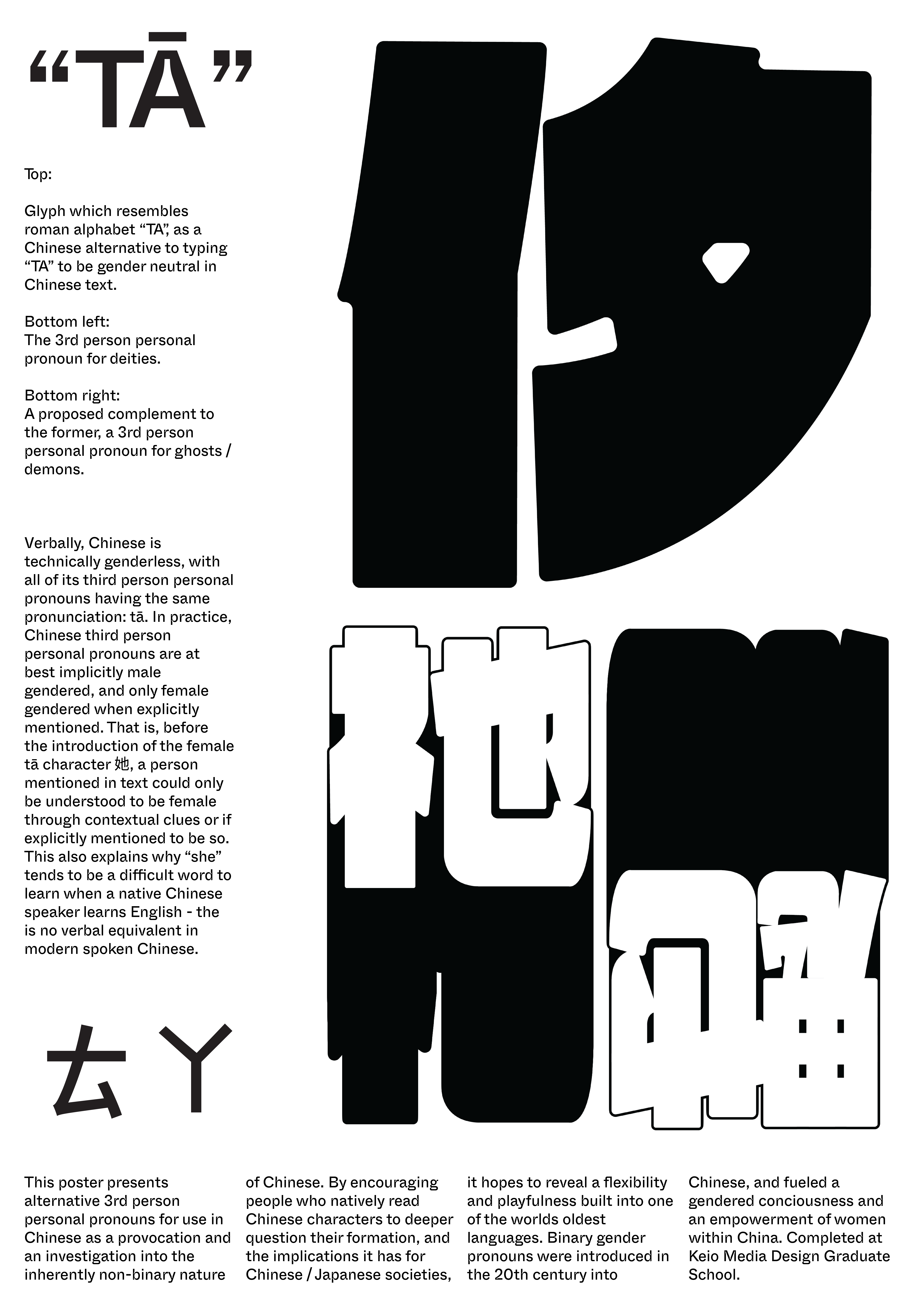
By encouraging people who natively read Chinese characters to deeper question their formation, and the implications it has for Chinese / Japanese societies, I hope to reveal a flexibility and playfulness built into one of the world’s oldest languages.
This project began with examining potentially problematic character compositions by focusing on the character construction itself within both Chinese and Japanese language contexts.
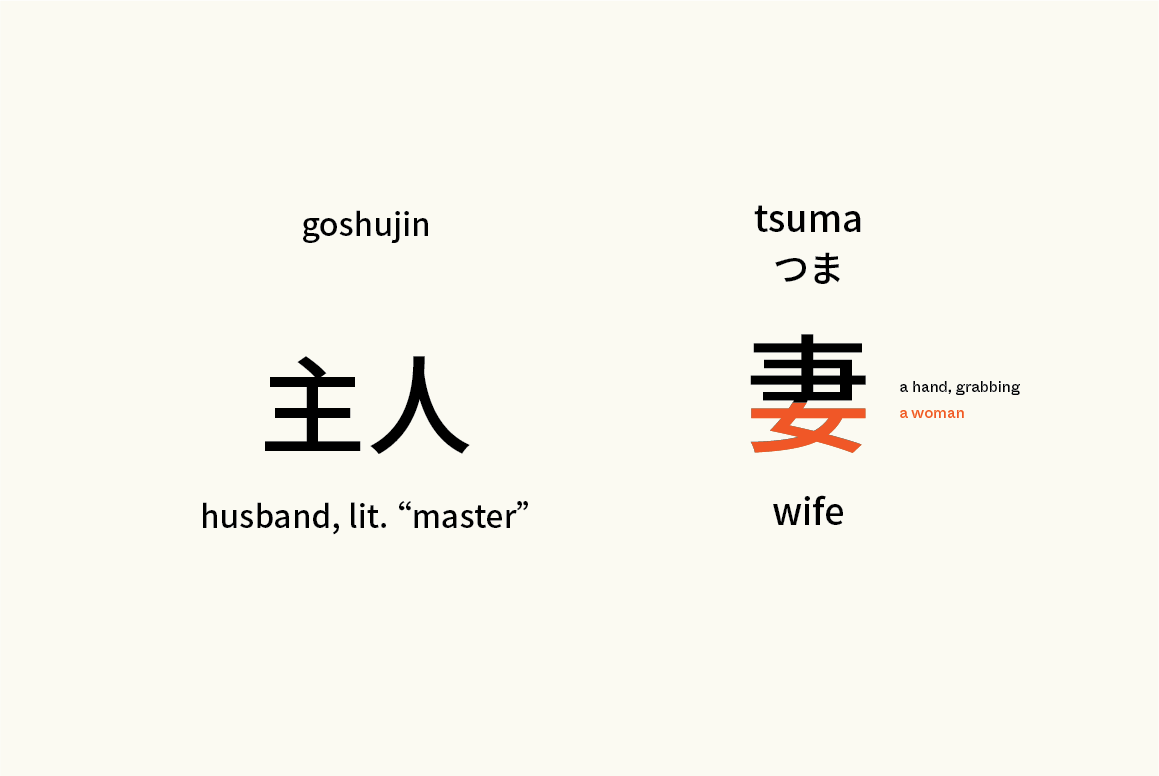
Commonly, design projects focusing on Chinese eschew difficult conversations by highlighting the few playful and fully semantic character constructions—it was my goal here to tackle the much more complicated truth of phonetic borrowing, embedded sexism, and more.
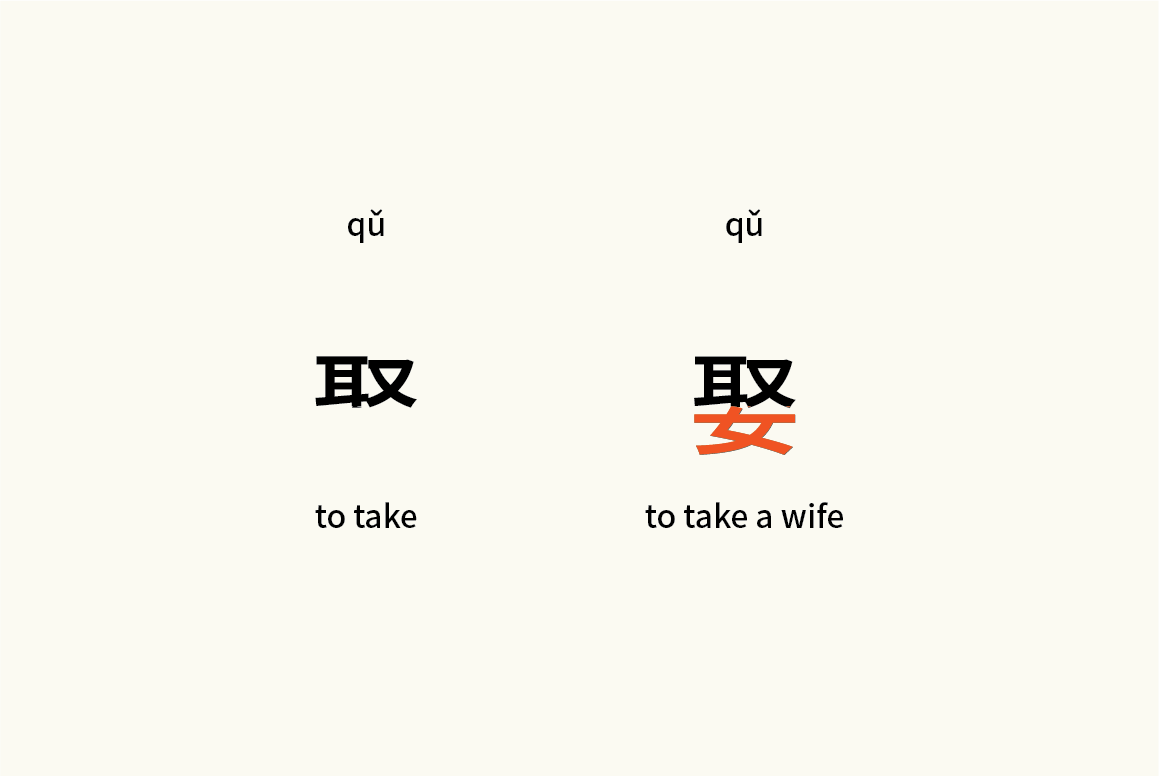
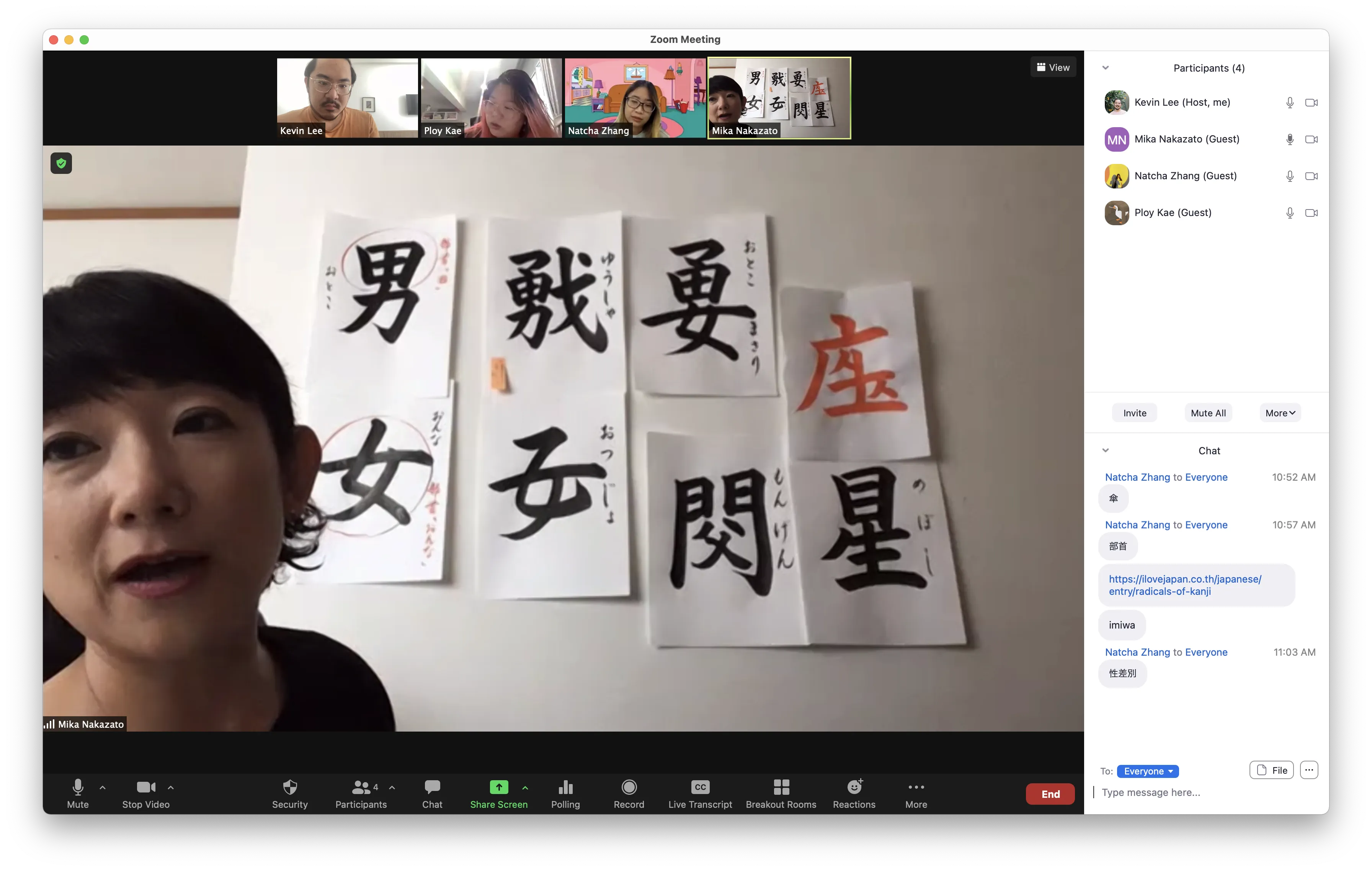
I interviewed Japanese calligraphers, feminist activists, and through the use of translators, conducted ethnographic research on the link between Chinese characters in use in Japan and the Japanese psyche. This included a workshop conducted for calligraphy students on inventing new Kanji.
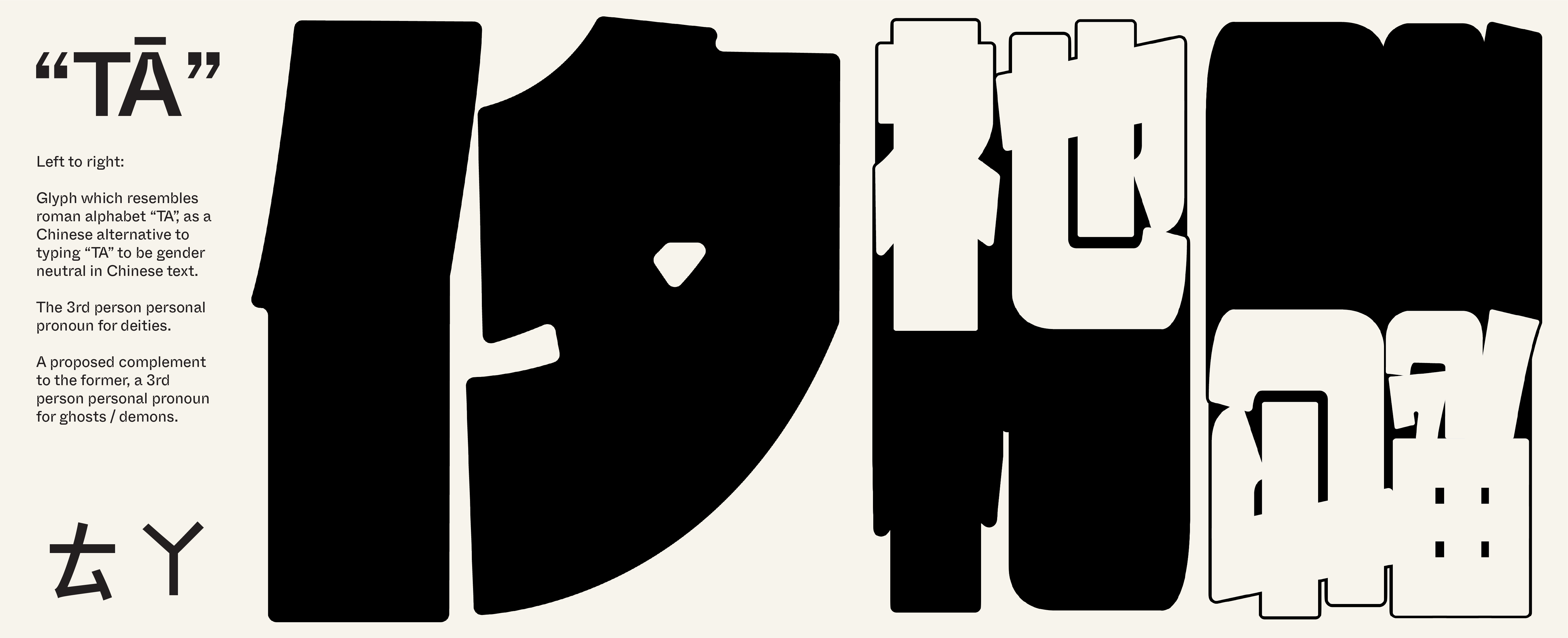
In the end, “TA” presents 祂 , the third personal pronoun for deities, as an alternative to gendered pronouns in Chinese, alongside 㐴 , a character resembling the english letters T and A. It’s a provocation to hanzi / kanji literate peoples everywhere - to examine their written language more deeply, appreciate its history, and to think about its future, a critically important task today as the art and daily task of writing Chinese characters is slowly disappearing digitally. If the future is Chinese, what characters will it use?
This project was adapted for and featured in the Critical Coding Cookbook, a book of speculative recipes on intersectional feminist approaches to teaching and learning, published by XinXin and Katherine Moriwaki of Parsons School of Design.
